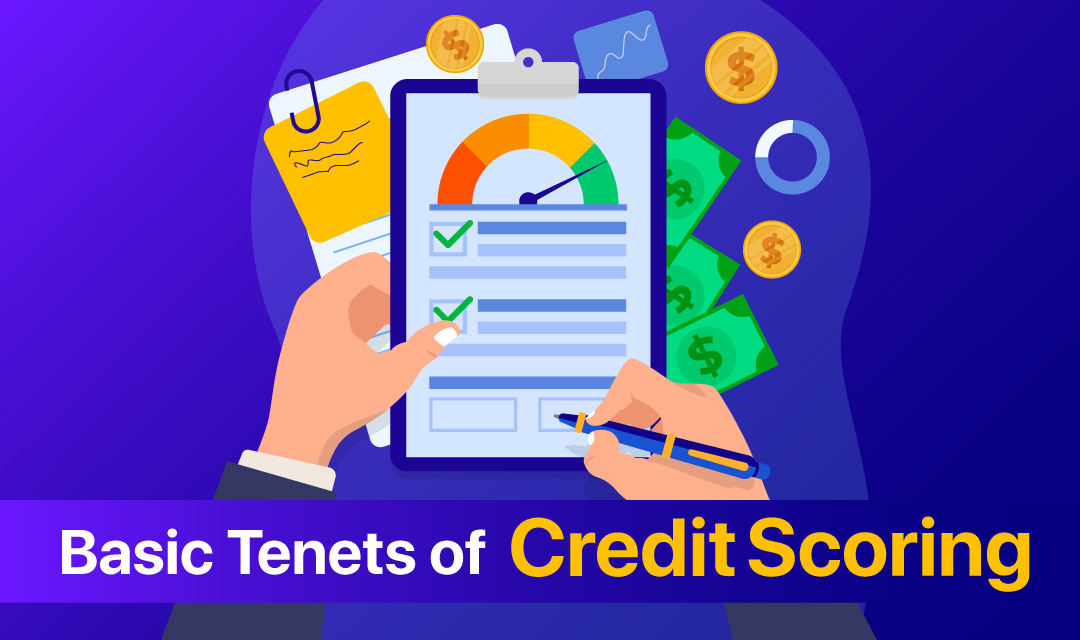
Maintaining a high credit score is one of the most important aspects of managing your personal finances. With a good credit score, you'll qualify for loans with lower rates. Credit scores range from 300 to 850 with a national average score of about 692 (for FICO Score), and 723 as the median. A credit score of 720 is considered a good credit score. A credit score is not only used in qualifying loans but it is also used to make hiring decisions and set insurance premiums.
There are three credit reporting agencies (also known as credit bureaus) in the United States, and they are Experian, TransUnion, and Equifax. Each credit bureau reports credit scores to each individual when requested by creditors. The credit score is tied to the social security number.

Your credit score represents your financial responsibilities and provides meaningful risk assessment to the creditors. You may obtain a free credit report annually from each of the credit bureaus by contacting Annual Credit Report or calling 877-322-8228. If you find any errors or misrepresentations, you may contact the credit bureau directly and remedy the problem by writing to them. The free reports do not provide numerical credit scores, but they will give you a good snapshot of your credits. If you wish to find your credit scores, you'll have to pay a nominal fee to obtain them.
Here are some facts about how credit reporting agencies score your credit.
- Open as many credit accounts as you can. Having more credit accounts boost your credit score than having just 1 or 2 accounts. Having multiple credit accounts provides more data points for creditors to examine.
- Credit utilization of 10% of your total credit is ideal for the best score. For example, if you have 5 credit cards with each having a $10,000 credit limit, having a balance of $5,000 or $1,000 each produces the best result.
- Closing your credit card accounts lowers your credit scores. Closing a credit card that you've had for a long time will damage more as creditors view older accounts better as they provide long history of payment records. Also, closing an account that has a high credit limit will do more damage than the one with a lower limit.
Frequently Asked Questions
Q. How many credit scores do you have, and how are they different?
A. There are many credit scores, but the most important scores are from the three credit reporting agencies. There are different types of credit scores, but FICO is the most standard followed by the PLUS Score and the rarely used Vantage Score. FICO ranges from 300 to 850; PLUS Score scale from 330 to 830; while Vantage Score from 501 to 900. The formula for scoring mortgage credit is different than the one for scoring auto loans.
Q. How does a small collection account damage your credit score?
A. Fair Isaac, a creator of FICO rolled out a new rule for "small" collection accounts. A collection account that has an original balance of under $100 will be discarded by the FICO scoring system.
Q. How do I improve my FICO credit score?
A. There is no quick and dirty fix for your "bad" credit. Repairing bad credit takes time, and there is no way around it. There are three things you can do to keep your credit back on track. (1) Request a free copy of your credit report from Annual Credit Report. Review your credit report very carefully, and dispute any errors that may be on your credit report. (2) One of the sure ways to improve your credit score is to make payments on time. (3) Reduce your debt and lower your credit utilization to about 10% of your total credit line. (4) Never allow collection accounts to be on your credit report. Collection accounts stay on your report for 7 years, and they drastically lower your credit score. (5) Do not close unused credit cards, and do not create too many credit accounts in an attempt to boost your credit score -- it may backfire if you open too many too rapidly.
Q. How do you dispute credit reports?
A. If you feel there are inaccuracies in your credit report, you must contact each of the three major credit reporting agencies. Here is the contact information.
TransUnion: 2 Baldwin Place, P.O. Box 2000, Chester, PA 19022 Equifax: P.O. Box 740241, Atlanta, GA 30371-0241 Experian: www.experian.com/rs/fi67.html - You must file your Experian dispute online.
Share this post
Leave a comment
All comments are moderated. Spammy and bot submitted comments are deleted. Please submit the comments that are helpful to others, and we'll approve your comments. A comment that includes outbound link will only be approved if the content is relevant to the topic, and has some value to our readers.

Comments (0)
No comment